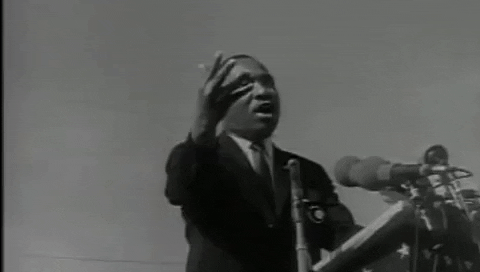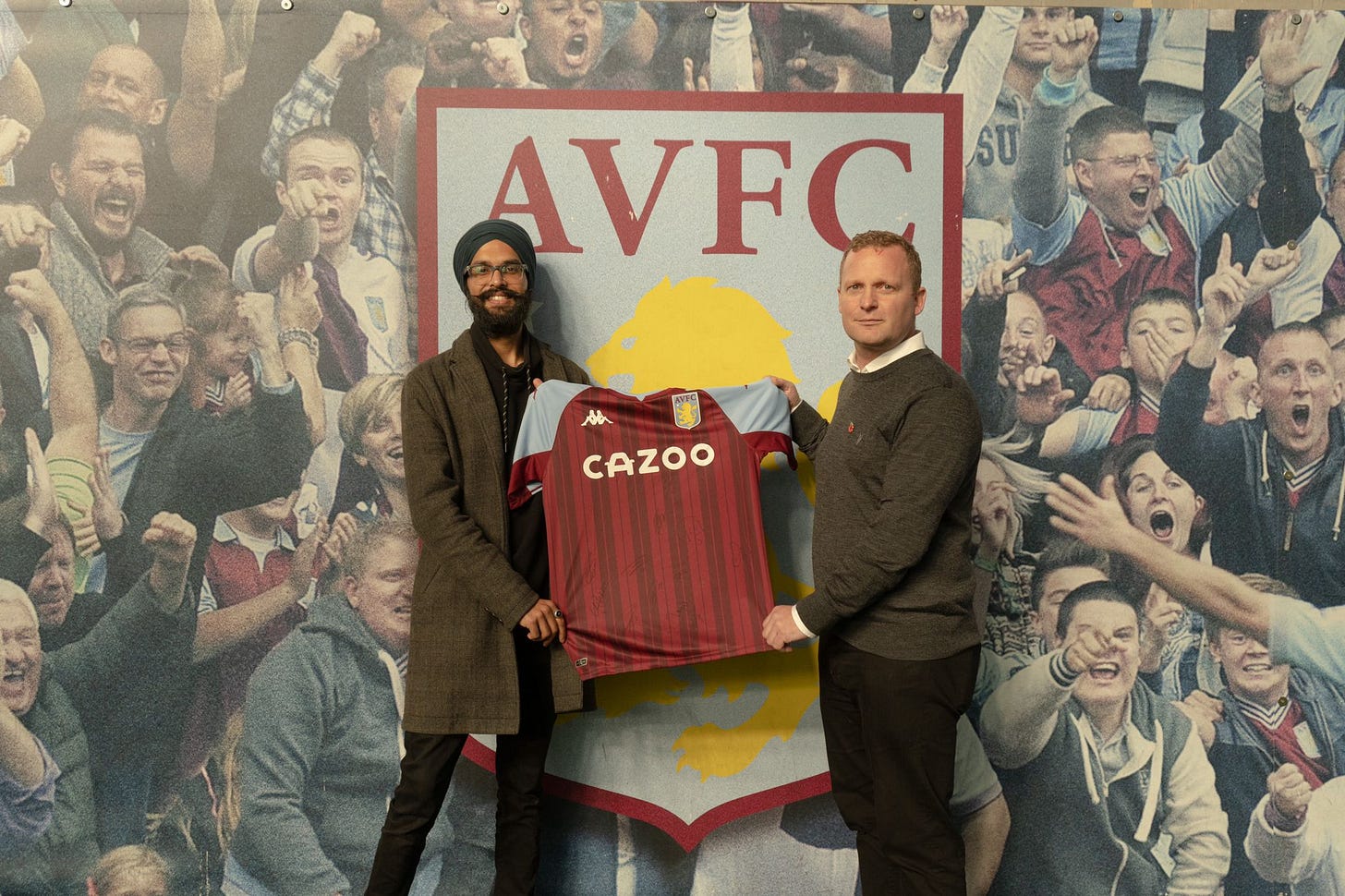Stereotypes are a real time saver; Yorkshire and The Moral Arbiter; Sponsors are revolting; Accenture and Tiger's brain; Multi club owners v McFootball pt2; Better Minutes; Sports tech; UP the Villa
The newsletter of the podcast
Multi-club ownership v McFootball, pt 2
This week’s podcast was episode 9 of Re:Thinking Sport, our series collaboration with Portas Consulting.
The guest was Brett Johnson, co-chair and part of the ownership consortium that bought Ipswich Town earlier this year, owns Phoenix Rising in the USL and bought the rights to the Rhode Island franchise, again in the lower tier of US football.
The conversation also featured Fabrice Bocquet, former MD of FC Lorient and Portas football practice lead partner.
The context for this pod was multi-club ownership (MCO) referencing previous episodes with Paul Conway of Pacific Media Group and the McFootball counter from Andy Holt, owner of Accrington Stanley.
Threads:
Pro/Rel - Johnson is operating in the US soccer market at the level below the MLS. This shapes his view of relegation, offering up a rare moment when an American sports investor calls for its introduction, clearing a route to the top of the pyramid.
Brett Johnson: I'm such a believer in pro/rel. First and foremost, it makes it that much more compelling. It just does. It's far more interesting to watch English football, where every single game matters. And when you get prominent clubs like Sunderland and Ipswich that are sitting in League One, but in their former glory were sitting up in the Premier League. I'm an owner that invests in the quality of the product on the pitch. And I like the Darwinian nature of having to always keep very focused on performance.
As Johnson acknowledged in the pod, the MLS ain’t going open anytime soon. A whole raft of franchise valuations would fall through the floor as a consequence. So, the question for the USL owners is, is it viable without a ramp out to a higher league? Where’s the aspiration?
Performance is a euphemism for getting in to the Premier League. This requires better players, who are more expensive and inflate the cost base which undermines the equation if you go down.
The other route - advocated by Paul Conway - is go with data-identified young (cheap) players, playing a high press supported by an internal market of players who can be shifted across teams within the same ownership group.
But you have to win: This week, Conway’s Barnsley sacked their head coach Markus Schopp after a run of one win in 15 league games and seven straight defeats left them 23rd in the Championship.
Betting and Transfers are the additional money streams that are becoming central to the business plan of MCOs and other football ownership groups.
Better Minutes is a data point referenced by Brett Johnson and Paul Conway. As in, how can we bring players on and get them ‘better minutes’ of playing time. I’d like to know more about this, as in how is ‘better’ defined?
Omni v Vertical. How viable/realistic is it to take the MCO model and apply it in other sports ie, an Omnisport model. For example, if a football club owned an IPL or Hundred franchise? It could make sense from an economies of scale point of view, by centralising the commercial and marketing functions, but the performance side has a logic flaw, because the data isn’t transferable. Or is it?
More likely is the build out of the model across women’s teams.
Stereotypes are a real time saver
There are certain immutable laws of football commentary: Italians are cynical, Germans are ruthlessly efficient. English are hardworking and predictable.
Black players are…?
This piece on bias in sports commentary reinforces what we all know to be true.
Build: Racial bias in sports marketing
When was the last time you saw a sports marketing campaign focused on a black athletes’ intellect, rather than physical attributes?
Accenture and Tiger Woods is the only campaign I can think of without a day of Googling. Please prove me wrong, would love to publish/celebrate other examples.
Sponsors are revolting, pt1: Yorkshire cricket and The Moral Arbiter
Tim Crow makes a decent point re Yorkshire CCC’s culture below. He’s referencing John Amaechi’s UP appearance last week. Hear it here #HearHere


Matt Hughes’ story above is a familiar sports marketing trope.
Like all the great tragedies, it’s a tale told over three acts.
A sports body does something wrong.
The media follows the money, defined as trawling the sportsco’s partner roster and ringing them up, demanding a response.
Sponsor is positioned as moral arbiter, with an opportunity to come out and stand for something.
So the brand is presented with an A/B decision.
A. It can take the high road (Martin Luther King Avenue).
B. Or it can stay put and hope it all dies down.
Personally, I’m a huge fan of a big flouncy exit.
Here’s a collection of exit statements from Yorkshire’s sponsor roster including Yorkshire Tea, Anchor Butter and The Emerald Group.
The last of these is the Headingley naming rights partner which wants to distance its name from the cricketers but keep it for fellow tenants, the Leeds Rhinos. So rugby league fans can continue to not refer to the historic ground as Emerald Headingley Stadium.
At this point, veteran sponsor types point out that these exit statements can be a useful opportunity to a) add a purpose statement to end a deal they were leaving anyway b) get out of a deal that wasn’t working and had ages to run and c) provoke many people to say, ‘Oh, I didn’t know they sponsored Yorkshire’.
See also: Zoopla, West Brom and Nicolas Anelka’s Quenelle.
Sponsors are revolting, pt2: COP out
I’m a sucker for a hapless rights holder story.
This one contains the following words and phrases:
COP26; mismanaged; very last minute; very inexperienced civil servants; promise of ‘unique benefits’; shifting goal posts; deeply frustrating.
A letter from the sponsors was leaked to The Guardian.
Sponsorship is expected to help defray a policing bill estimated to reach up to £250m.
Alongside Sky, the summit has 10 other major sponsors, including energy giants Hitachi, National Grid, Scottish Power and SSE, US tech titan Microsoft, and FTSE companies GSK, NatWest, Reckitt, Sainsbury’s and Unilever. Unilever has denied signing the letter penned by Sky. Other lower tier “partners” include the car maker Jaguar Land Rover and the furniture retailer Ikea.
Andy Westlake, chair of ESA, weighed in here.
The Tiger Woods Accenture Callback
A pleasing circularity occurs.
When Tiger’s reputation hit the fire hydrant, Accenture was posed the MLK Avenue Question, as per above: Stay (like Nike) or Go (Like everyone else).
This was harder for Accenture than for say, Buick, for whom Tiger was just a transparently transactional marketing asset. There was very little collateral damage from dropping him.
But. Accenture had a bigger problem, because the downfall of Tiger Woods went straight to the core of what the company is.
Accenture are supposed to be the smartest guys in the room.
That’s their position.
Tiger’s downfall suggested two outcomes, neither good.
Accenture didn’t know. Not so smart.
Accenture knew and didn’t care. But…aren’t they supposed to be the kings of due diligence.
Appearing on UP is a cause and effect thing
Last week’s podcast featured Gundeep Anand, Ricardo Fort and Michaela Gooden brainstorming The Last Stand women’s street football tournament.
This week, the Aston Villa Foundation heard the pod and the club is now hosting the event. Good ideas make good people move fast.
What Gundeep needs now is a media partner to help him spread the word. Anyone out there in that game?
See previous note on The Last Stand.
The sport metaphor
We talk a lot about sports documentaries. (Read Murray Barnett’s Ten Sports Docs You’ve Never Seen)
Far less so about fiction.
This piece on LitHub makes a point about what we’re missing: “Nonfiction can chart the contours of these themes—but fiction allows readers to feel the stuff itself. And what they’ll feel isn’t pleasant.”
If the baseball novel shows America as we’d like to see ourselves, the football novel can show us as we are. What other sport so accurately encapsulates America’s noxious racial divide, with young people of color dominating rosters while the head coaching ranks, donorati, and team owners are overwhelmingly elderly, rich, and white? What other sport better gets at capitalist exploitation at the national scale, with working class kids (of any race) lured into a physically devastating activity via the lie that it will provide them the tools for social mobility? What other sport so deeply draws from some of the country’s most marginalized regions—the Deep South, the Industrial Midwest—and by so doing exemplifies the regional inequalities that have made for our ongoing national political nightmare?
Nonfiction can chart the contours of these themes—but fiction allows readers to feel the stuff itself. And what they’ll feel isn’t pleasant.
Good point in the last line of the piece about why baseball and the novel are interlinked. This might be true of cricket and horse racing too.
Sportswashing news
Working theory: Sportswashing works a bit like a toxic naming rights deal, and not in a good way.
(See previous note: Sportswashing doesn’t work like dictators think it does)
Rather than soften the reputation, any mention of Saudi or China comes with a reference to HUMAN RIGHTS ABUSES.
Exhibit A: This week Greg Norman came out front for the Saudi backed golf league disruptor thing.
Norman’s interview with Golf Digest included a bit where he blunders in to women’s role in Saudi Arabia. And is retrospectively slapped down by Golf Digest’s editors.
Sports tech: when greed gives way to fear
Ed Rhys on the rise of Corporate Venture
When I was working in investment banking back in the late 00s and early 10s, the elephant everyone was looking to bag was the Sovereign Wealth Fund. Now it’s Corporate Venture. Names like Nike, ASICs, BAT, and Telefonica sit cheek by jowl alongside the Andreessen Horowitzs, Sequoias and Index Ventures of this world in massive fundraisings that are re-defining the parameters of Series A, B, C. You can almost hear the Valley tech journos whispering... “$25 million Series As are SO last year, darling.”
And this:
I’m interested in how Corporate Venture fares during the next phase of the credit cycle. Right now, things are at fever pitch, with the technology industry inflating rapidly and corporations desperate not to miss out. But at some point, greed will give way to fear and market dynamics will shift. This is precisely what happened at the start of this century, when the Dot Com bubble burst and corporations abandoned Corporate Venture like a deflated paddling pool. Then, after a painfully slow recovery, corporate investment once again crashed in 2008.
Little details count
This tweet helps explain the buzz around Buzzer.

Till next time.












